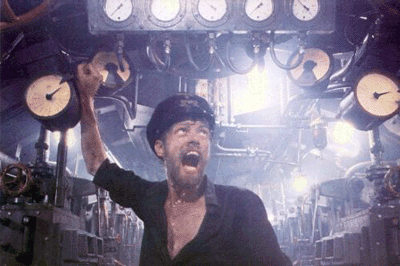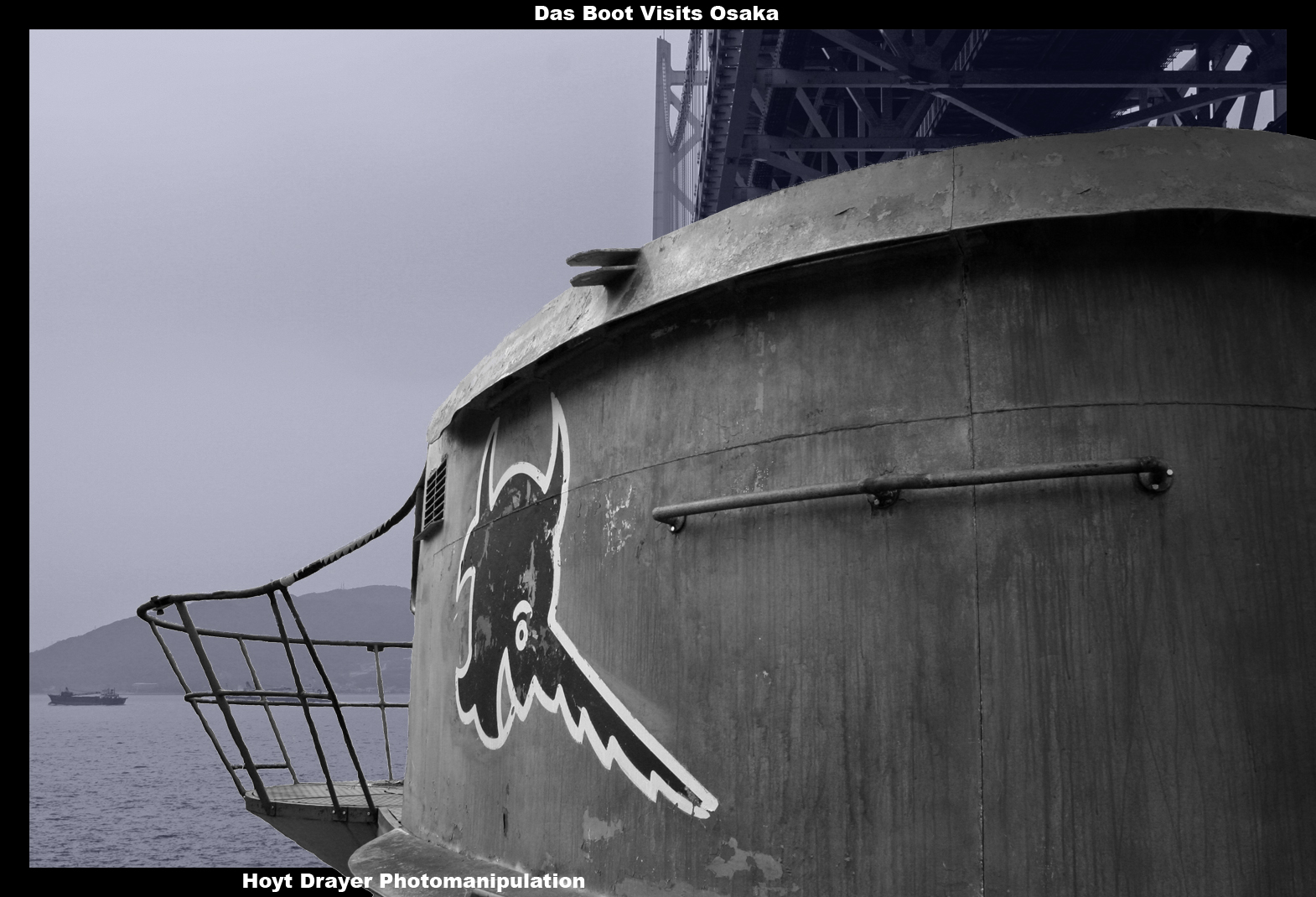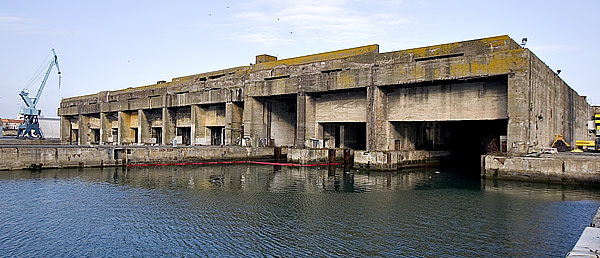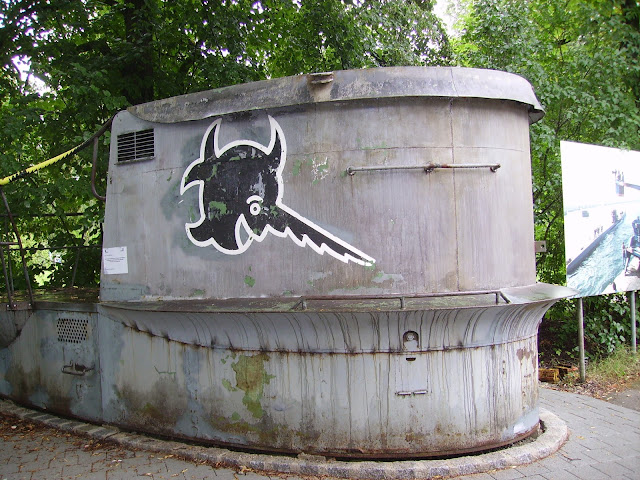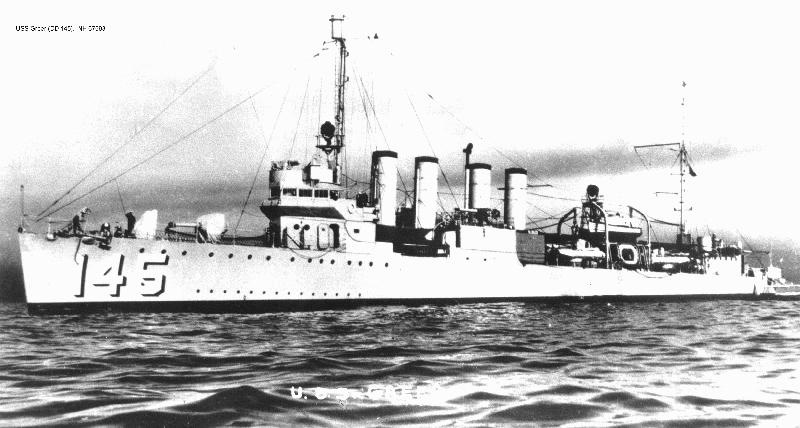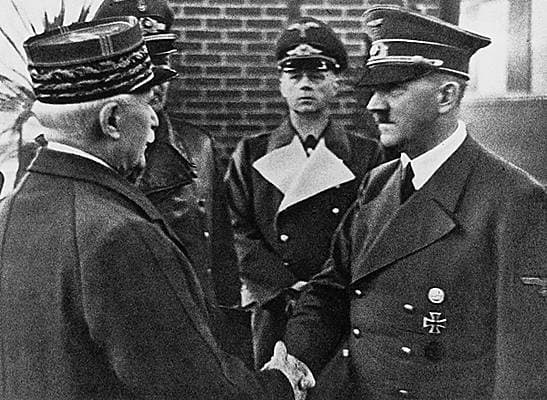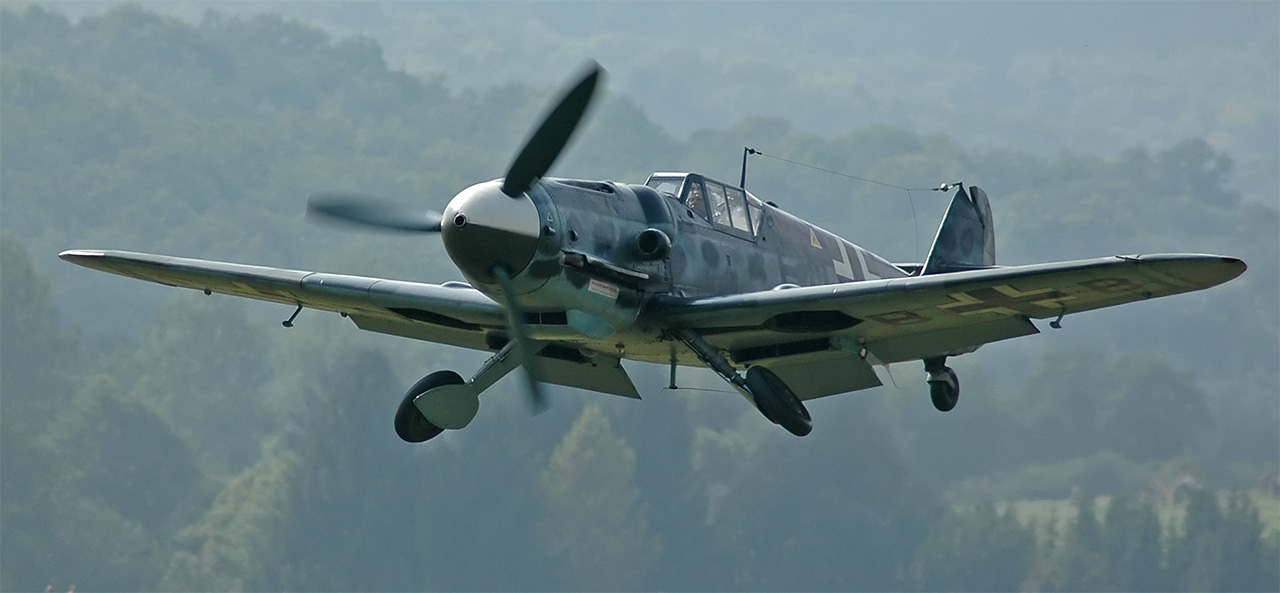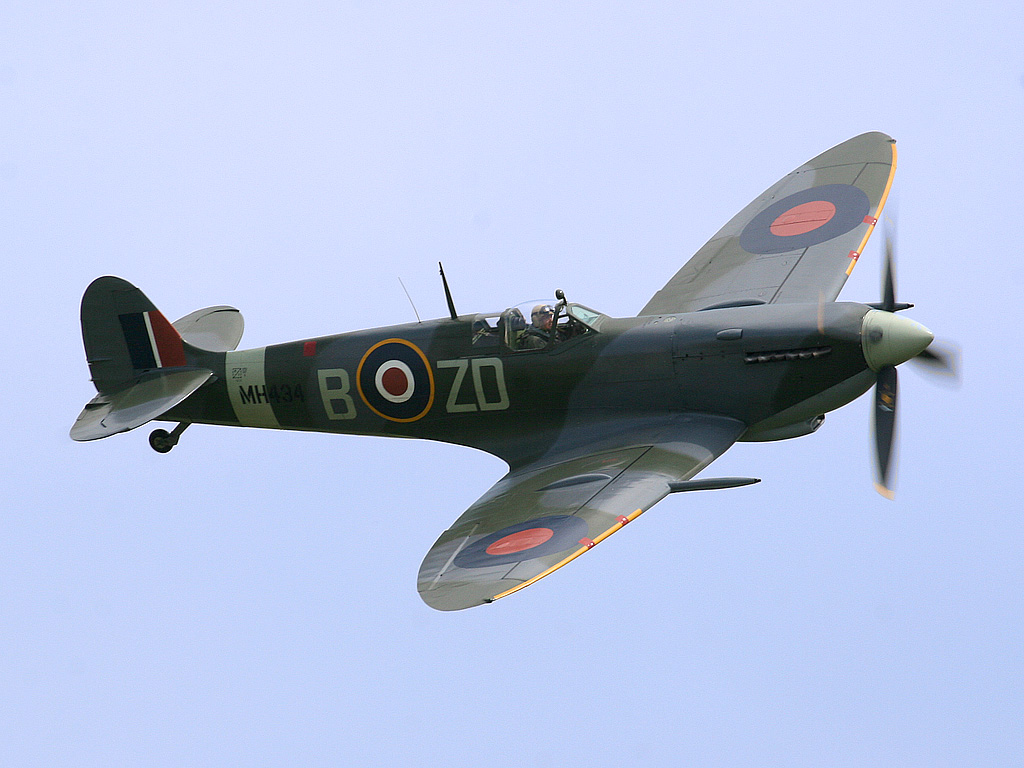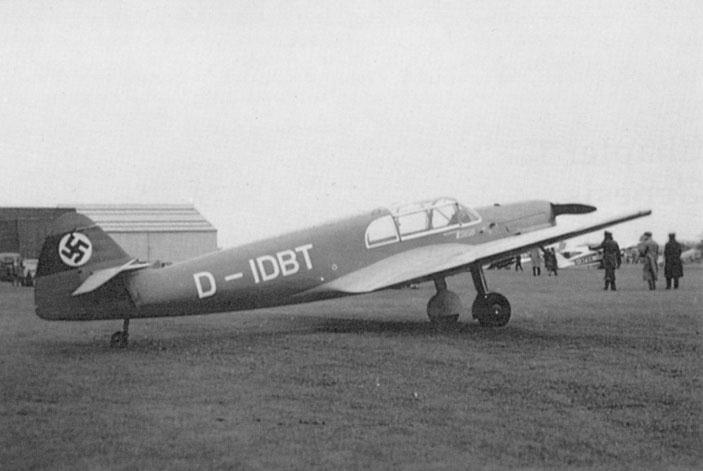My fellow Americans:
The Navy Department of the United States has reported to me that on the
morning of September fourth the United States destroyer GREER,
proceeding in full daylight towards Iceland, had reached a point
southeast of Greenland. She was carrying American mail to Iceland. She
was flying the American flag. Her identity as an American ship was
unmistakable.
She was then and there attacked by a submarine. Germany admits that it
was a German submarine. The submarine deliberately fired a torpedo at
the GREER, followed later by another torpedo attack. In spite of what
Hitler's propaganda bureau has invented, and in spite of what any
American obstructionist organization may prefer to believe, I tell you
the blunt fact that the German submarine fired first upon this American
destroyer without warning, and with deliberate design to sink her.
Our destroyer, at the time, was in waters which the Government of the
United States had declared to be waters of self-defense -- surrounding
outposts of American protection in the Atlantic.
In the North of the Atlantic, outposts have been established by us in
Iceland, in Greenland, in Labrador and in Newfoundland. Through these
waters there pass many ships of many flags. They bear food and other
supplies to civilians; and they bear material of war, for which the
people of the United States are spending billions of dollars, and which,
by Congressional action, they have declared to be essential for the
defense of (their) our own land.
The United States destroyer, when attacked, was proceeding on a legitimate mission.
If the destroyer was visible to the submarine when the torpedo was
fired, then the attack was a deliberate attempt by the Nazis to sink a
clearly identified American warship. On the other hand, if the submarine
was beneath the surface of the sea and, with the aid of its listening
devices, fired in the direction of the sound of the American destroyer
without even taking the trouble to learn its identity -- as the official
German communique would indicate -- then the attack was even more
outrageous. For it indicates a policy of indiscriminate violence against
any vessel sailing the seas --belligerent or non-belligerent.
This was piracy -- piracy legally and morally. It was not the first nor
the last act of piracy which the Nazi Government has committed against
the American flag in this war. For attack has followed attack.
A few months ago an American flag merchant ship, the ROBIN MOOR, was
sunk by a Nazi submarine in the middle of the South Atlantic, under
circumstances violating long-established international law and violating
every principle of humanity. The passengers and the crew were forced
into open boats hundreds of miles from land, in direct violation of
international agreements signed by nearly all nations including the
Government of Germany. No apology, no allegation of mistake, no offer of
reparations has come from the Nazi Government.
In July, 1941, nearly two months ago an American battleship in North
American waters was followed by a submarine which for a long time sought
to maneuver itself into a position of attack upon the battleship. The
periscope of the submarine was clearly seen. No British or American
submarines were within hundreds of miles of this spot at the time, so
the nationality of the submarine is clear.
Five days ago a United States Navy ship on patrol picked up three
survivors of an American-owned ship operating under the flag of our
sister Republic of Panama -- the S. S. SESSA. On August seventeenth, she
had been first torpedoed without warning, and then shelled, near
Greenland, while carrying civilian supplies to Iceland. It is feared
that the other members of her crew have been drowned. In view of the
established presence of German submarines in this vicinity, there can be
no reasonable doubt as to the identity of the flag of the attacker.
Five days ago, another United States merchant ship, the STEEL SEAFARER,
was sunk by a German aircraft in the Red Sea two hundred and twenty
miles south of Suez. She was bound for an Egyptian port.
So four of the vessels sunk or attacked flew the American flag and were
clearly identifiable. Two of these ships were warships of the American
Navy. In the fifth case, the vessel sunk clearly carried the flag of our
sister Republic of Panama.
In the face of all this, we Americans are keeping our feet on the
ground. Our type of democratic civilization has outgrown the thought of
feeling compelled to fight some other nation by reason of any single
piratical attack on one of our ships. We are not becoming hysterical or
losing our sense of proportion. Therefore, what I am thinking and saying
tonight does not relate to any isolated episode.
Instead, we Americans are taking a long-range point of view in regard to
certain fundamentals (and) -- a point of view in regard to a series of
events on land and on sea which must be considered as a whole -- as a
part of a world pattern.
It would be unworthy of a great nation to exaggerate an isolated
incident, or to become inflamed by some one act of violence. But it
would be inexcusable folly to minimize such incidents in the face of
evidence which makes it clear that the incident is not isolated, but is
part of a general plan.
The important truth is that these acts of international lawlessness are a
manifestation of a design (which) -- a design that has been made clear
to the American people for a long time. It is the Nazi design to abolish
the freedom of the seas, and to acquire absolute control and domination
of (the) these seas for themselves.
For with control of the seas in their own hands, the way can obviously
become clear for their next step -- domination of the United States (and
the) -- domination of the Western Hemisphere by force of arms. Under
Nazi control of the seas, no merchant ship of the United States or of
any other American Republic would be free to carry on any peaceful
commerce, except by the condescending grace of this foreign and
tyrannical power. The Atlantic Ocean which has been, and which should
always be, a free and friendly highway for us would then become a deadly
menace to the commerce of the United States, to the coasts of the
United States, and even to the inland cities of the United States.
The Hitler Government, in defiance of the laws of the sea, (and) in
defiance of the recognized rights of all other nations, has presumed to
declare, on paper, that great areas of the seas -- even including a vast
expanse lying in the Western Hemisphere -- are to be closed, and that
no ships may enter them for any purpose, except at peril of being sunk.
Actually they are sinking ships at will and without warning in widely
separated areas both within and far outside of these far-flung pretended
zones.
This Nazi attempt to seize control of the oceans is but a counterpart of
the Nazi plots now being carried on throughout the Western Hemisphere
-- all designed toward the same end. For Hitler's advance guards -- not
only his avowed agents but also his dupes among us -- have sought to
make ready for him footholds, (and) bridgeheads in the New World, to be
used as soon as he has gained control of the oceans.
His intrigues, his plots, his machinations, his sabotage in this New
World are all known to the Government of the United States. Conspiracy
has followed conspiracy. For example, last year a plot to seize the
Government of Uruguay was smashed by the prompt action of that country,
which was supported in full by her American neighbors. A like plot was
then hatching in Argentina, and that government has carefully and wisely
blocked it at every point. More recently, an endeavor was made to
subvert the government of Bolivia. And within the past few weeks the
discovery was made of secret air-landing fields in Colombia, within easy
range of the Panama Canal. I could multiply instance(s) upon instance.
To be ultimately successful in world mastery, Hitler knows that he must
get control of the seas. He must first destroy the bridge of ships which
we are building across the Atlantic and over which we shall continue to
roll the implements of war to help destroy him, (and)to destroy all his
works in the end. He must wipe out our patrol on sea and in the air if
he is to do it. He must silence the British Navy.
I think it must be explained (again and) over and over again to people
who like to think of the United States Navy as an invincible protection,
that this can be true only if the British Navy survives. And that, my
friends, is simple arithmetic.
For if the world outside of the Americas falls under Axis domination,
the shipbuilding facilities which the Axis powers would then possess in
all of Europe, in the British Isles and in the Far East would be much
greater than all the shipbuilding facilities and potentialities of all
of the Americas -- not only greater, but two or three times greater,
enough to win. Even if the United States threw all its resources into
such a situation, seeking to double and even redouble the size of our
Navy, the Axis powers, in control of the rest of the world, would have
the manpower and the physical resources to outbuild us several times
over.
It is time for all Americans, Americans of all the Americas to stop
being deluded by the romantic notion that the Americas can go on living
happily and peacefully in a Nazi-dominated world.
Generation after generation, America has battled for the general policy
of the freedom of the seas. And that policy is a very simple one, but a
basic, a fundamental one. It means that no nation has the right to make
the broad oceans of the world at great distances from the actual theatre
of land war, unsafe for the commerce of others.
That has been our policy, proved time and (time) again, in all of our
history. Our policy has applied from (time immemorial) the earliest days
of the Republic -- and still applies -- not merely to the Atlantic but
to the Pacific and to all other oceans as well.
Unrestricted submarine warfare in 1941 constitutes defiance -- an act of aggression -- against that historic American policy.
It is now clear that Hitler has begun his campaign to control the seas
by ruthless force and by wiping out every vestige of international law,
(and) every vestige of humanity.
His intention has been made clear. The American people can have no further illusions about it.
No tender whisperings of appeasers that Hitler is not interested in the
Western Hemisphere, no soporific lullabies that a wide ocean protects us
from him -- can long have any effect on the hard-headed, far-sighted
and realistic American people.
Because of these episodes, because of the movements and operations of
German warships, and because of the clear, repeated proof that the
present government of Germany has no respect for treaties or for
international law, that it has no decent attitude toward neutral nations
or human life -- we Americans are now face to face not with abstract
theories but with cruel, relentless facts.
This attack on the GREER was no localized military operation in the
North Atlantic. This was no mere episode in a struggle between two
nations. This was one determined step towards creating a permanent world
system based on force, on terror and on murder.
And I am sure that even now the Nazis are waiting, waiting to see
whether the United States will by silence give them the green light to
go ahead on this path of destruction.
The Nazi danger to our Western world has long ceased to be a mere
possibility. The danger is here now -- not only from a military enemy
but from an enemy of all law, all liberty, all morality, all religion.
There has now come a time when you and I must see the cold inexorable
necessity of saying to these inhuman, unrestrained seekers of world
conquest and permanent world domination by the sword: "You seek to throw
our children and our children's children into your form of terrorism
and slavery. You have now attacked our own safety. You shall go no
further."
Normal practices of diplomacy -- note writing -- are of no possible use
in dealing with international outlaws who sink our ships and kill our
citizens.
One peaceful nation after another has met disaster because each refused
to look the Nazi danger squarely in the eye until it had actually had
them by the throat.
The United States will not make that fatal mistake.
No act of violence, (or) no act of intimidation will keep us from
maintaining intact two bulwarks of American defense: First, our line of
supply of material to the enemies of Hitler; and second, the freedom of
our shipping on the high seas.
No matter what it takes, no matter what it costs, we will keep open the
line of legitimate commerce in these defensive water of ours.
We have sought no shooting war with Hitler. We do not seek it now. But
neither do we want peace so much, that we are willing to pay for it by
permitting him to attack our naval and merchant ships while they are on
legitimate business.
I assume that the German leaders are not deeply concerned, tonight or
any other time, by what we Americans or the American Government say or
publish about them. We cannot bring about the downfall of Nazi-ism by
the use of long-range invective.
But when you see a rattlesnake poised to strike, you do not wait until he has struck before you crush him.
These Nazi submarines and raiders are the rattlesnakes of the Atlantic.
They are a menace to the free pathways of the high seas. They are a
challenge to our own sovereignty. They hammer at our most precious
rights when they attack ships of the American flag -- symbols of our
independence, our freedom, our very life.
It is clear to all Americans that the time has come when the Americas
themselves must now be defended. A continuation of attacks in our own
waters or in waters (which) that could be used for further and greater
attacks on us, will inevitably weaken our American ability to repel
Hitlerism.
Do not let us (split hairs) be hair-splitters. Let us not ask ourselves
whether the Americas should begin to defend themselves after the (fifth)
first attack, or the (tenth) fifth attack, or the tenth attack, or the
twentieth attack.
The time for active defense is now.
Do not let us split hairs. Let us not say : "We will only defend
ourselves if the torpedo succeeds in getting home, or if the crew and
the passengers are drowned".
This is the time for prevention of attack.
If submarines or raiders attack in distant waters, they can attack
equally well within sight of our own shores. Their very presence in any
waters which America deems vital to its defense constitutes an attack.
In the waters which we deem necessary for our defense, American naval
vessels and American planes will no longer wait until Axis submarines
lurking under the water, or Axis raiders on the surface of the sea,
strike their deadly blow -- first.
Upon our naval and air patrol -- now operating in large number over a
vast expanse of the Atlantic Ocean -- falls the duty of maintaining the
American policy of freedom of the seas -- now. That means, very simply,
(and) very clearly, that our patrolling vessels and planes will protect
all merchant ships -- not only American ships but ships of any flag --
engaged in commerce in our defensive waters. They will protect them from
submarines; they will protect them from surface raiders.
This situation is not new. The second President of the United States,
John Adams, ordered the United States Navy to clean out European
privateers and European ships of war which were infesting the Caribbean
and South American waters, destroying American commerce.
The third President of the United States, Thomas Jefferson, ordered the
United States Navy to end the attacks being made upon American and other
ships by the corsairs of the nations of North Africa.
My obligation as President is historic; it is clear. Yes, it is inescapable.
It is no act of war on our part when we decide to protect the seas
(which) that are vital to American defense. The aggression is not ours.
Ours is solely defense.
But let this warning be clear. From now on, if German or Italian vessels
of war enter the waters, the protection of which is necessary for
American defense, they do so at their own peril.
The orders which I have given as Commander-in-Chief (to) of the United
States Army and Navy are to carry out that policy -- at once.
The sole responsibility rests upon Germany. There will be no shooting unless Germany continues to seek it.
That is my obvious duty in this crisis. That is the clear right of this
sovereign nation. (That) This is the only step possible, if we would
keep tight the wall of defense which we are pledged to maintain around
this Western Hemisphere.
I have no illusions about the gravity of this step. I have not taken it
hurriedly or lightly. It is the result of months and months of constant
thought and anxiety and prayer. In the protection of your nation and
mine it cannot be avoided.
The American people have faced other grave crises in their history --
with American courage, (and) with American resolution. They will do no
less today.
They know the actualities of the attacks upon us. They know the
necessities of a bold defense against these attacks. They know that the
times call for clear heads and fearless hearts.
And with that inner strength that comes to a free people conscious of
their duty, (and) conscious of the righteousness of what they do, they
will -- with Divine help and guidance -- stand their ground against this
latest assault upon their democracy, their sovereignty, and their
freedom.





